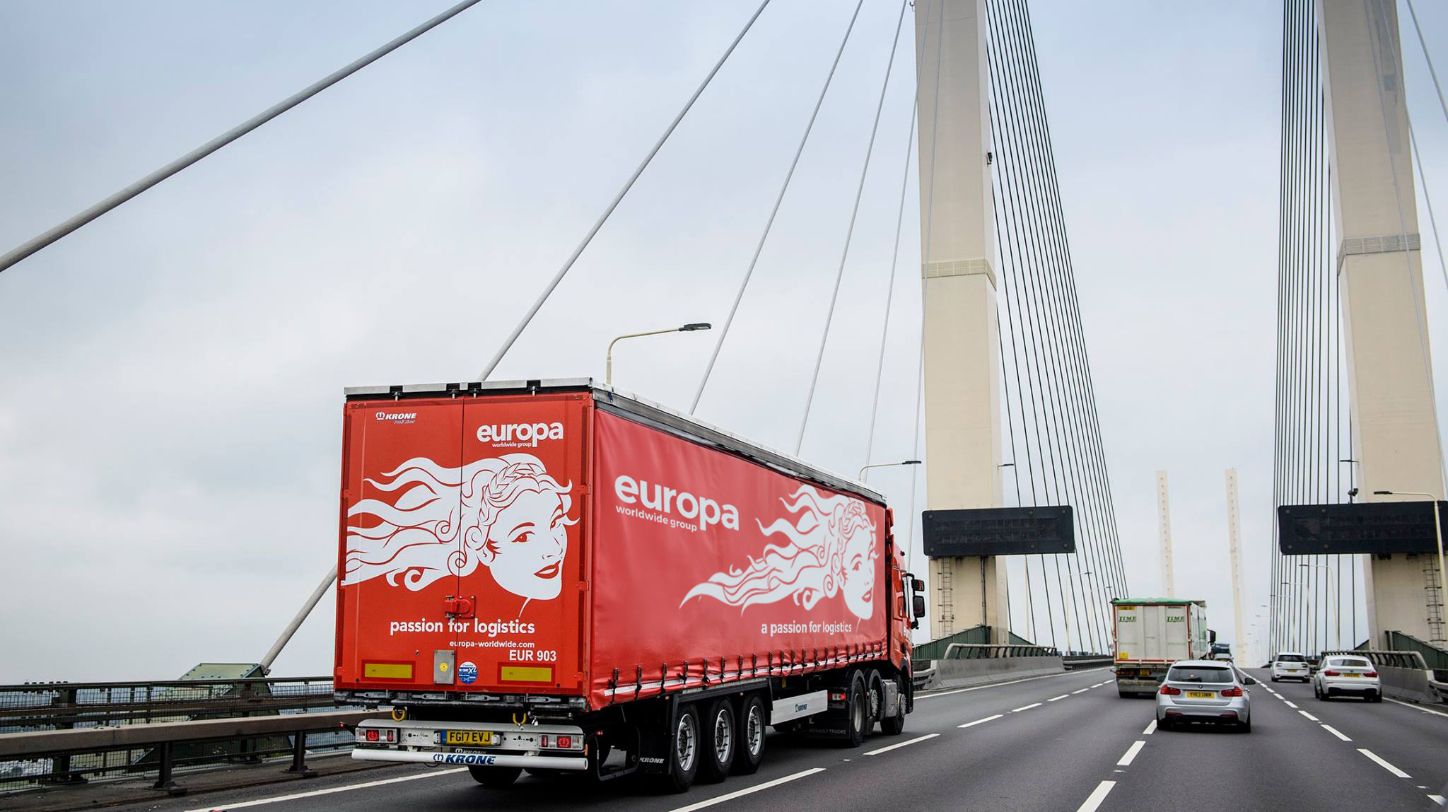Andrew Baxter, CEO of logistics firm Europa Worldwide Group, has voiced his support for the construction of the Lower Thames Crossing, after the decision on whether or not to go ahead with the project was delayed for a third time by the UK government.
National Highways describes the Lower Thames Crossing as ‘a proposed new road that would connect Kent and Essex through a tunnel beneath the River Thames’. This new route, it says, ‘will almost double road capacity over the river east of London to reduce congestion and give millions of people more choice on where they live, work and spend their valuable time’.
According to National Highways, if given the go-ahead, the 23km-long tunnel is estimated to add £40 billion to the UK economy.
On 7 October 2024, secretary of state for transport Louise Haigh MP announced the extension of the deadline to come to a decision on the Lower Thames Crossing to 23 May 2025 ‘in order to allow more time for the application to be considered further, including any decisions made as part of the spending review’.
This decision proved controversial, with several organisations in the logistics sector expressing their disappointment. At the time of the announcement, the CEO of business group Logistics UK, David Wells OBE, said: “The postponement of the decision on the Lower Thames Crossing’s Development Consent Order (DCO) is deeply concerning and runs counter to what the new government has said about getting Britain building again.
“Industry is united in its opinion that the Lower Thames Crossing needs to be built so the decision to delay the DCO will be met with bitter disappointment and frustration by businesses up and down the country. The new crossing can pay for itself many times over, driving growth by generating billions for the UK economy and creating thousands of high-quality jobs, and should not be delayed further.”
He went on to say: “The Dartford Crossing is currently the only Thames crossing east of London and delaying the decision will prolong the daily congestion which makes it one of the most unreliable routes in the UK. Two-thirds of journeys travelling north at the Dartford Crossing take twice as long as they should, and the delays cost the UK economy more than £200 million every year in lost productivity.
“40% of journeys across the Dartford Crossing are freight vehicles carrying vital goods throughout the country and the government needs to grant the DCO as soon as possible to unlock UK logistics, drive growth and help keep supply chains moving across the whole country.”
Sharing a similar view, Richard Smith, managing director of the Road Haulage Association (RHA), said: “We’re disappointed that the Lower Thames Crossing hasn’t yet been given the green light. This is a transformative roads improvement project that could create a more resilient road network and unlock investment opportunities to boost UK business; it would reduce journey times and improve efficiencies for our sectors.
“Delays to this project undermine these goals and perpetuate the challenges faced by operators of lorries, coaches and vans. We urge the government to give consent to this much-needed new route that would create jobs and prosperity and drive economic growth.”
Now, Europa’s CEO Andrew Baxter has urged the government to consider the benefits of the proposal. Like Logistics UK’s Wells, Baxter acknowledged the fact that 40% of journeys across the Dartford Crossing are made by freight vehicles.
“With the sheer volume of daily traffic in and around the crossing (which is the main road link over the Thames), it’s not uncommon for us to experience delays,” he said.
Europa operates a 27,000ft² European transit hub next to the Dartford Crossing, and the company notes that delays are a frequent frustration – one that is hindering trade for its customers.
Baxter elaborated: “This has a huge knock-on effect for British exporters and importers, who rely on the Dartford Crossing as a key trading route. Delays in transit pose a risk to reputations, not to mention the financial consequences of not being able to meet consumer demand.
“For these businesses, who have already had to contend with changes in how goods move across borders post-Brexit, the Lower Thames Crossing promises a significant lifeline, streamlining connections into across the UK, into Europe and improving transit times.”
Europa currently makes approximately 30,000 journeys annually into the EU from the Eurotunnel terminal in Folkstone. The proposed Lower Thames Crossing, it believes, would offer an alternative road link connecting Europa’s customers with mainland Europe.
The issue of congestion at the Dartford Crossing is not a new one for Europa’s Baxter. In 2017, he led a campaign called ‘Stop the Convoys’, which proposed a solution of stopping or reducing the number of oversized and/or hazardous goods vehicles passing through the tunnel, an issue which he says is still ongoing.
Baxter concluded: “It is estimated that £200 million is lost every year in productivity due to delays at the Dartford Crossing. With an emphasis now more than ever on cutting the red tape around trade, the proposed changes to Dartford’s road links could be instrumental in keeping Britain moving.”









